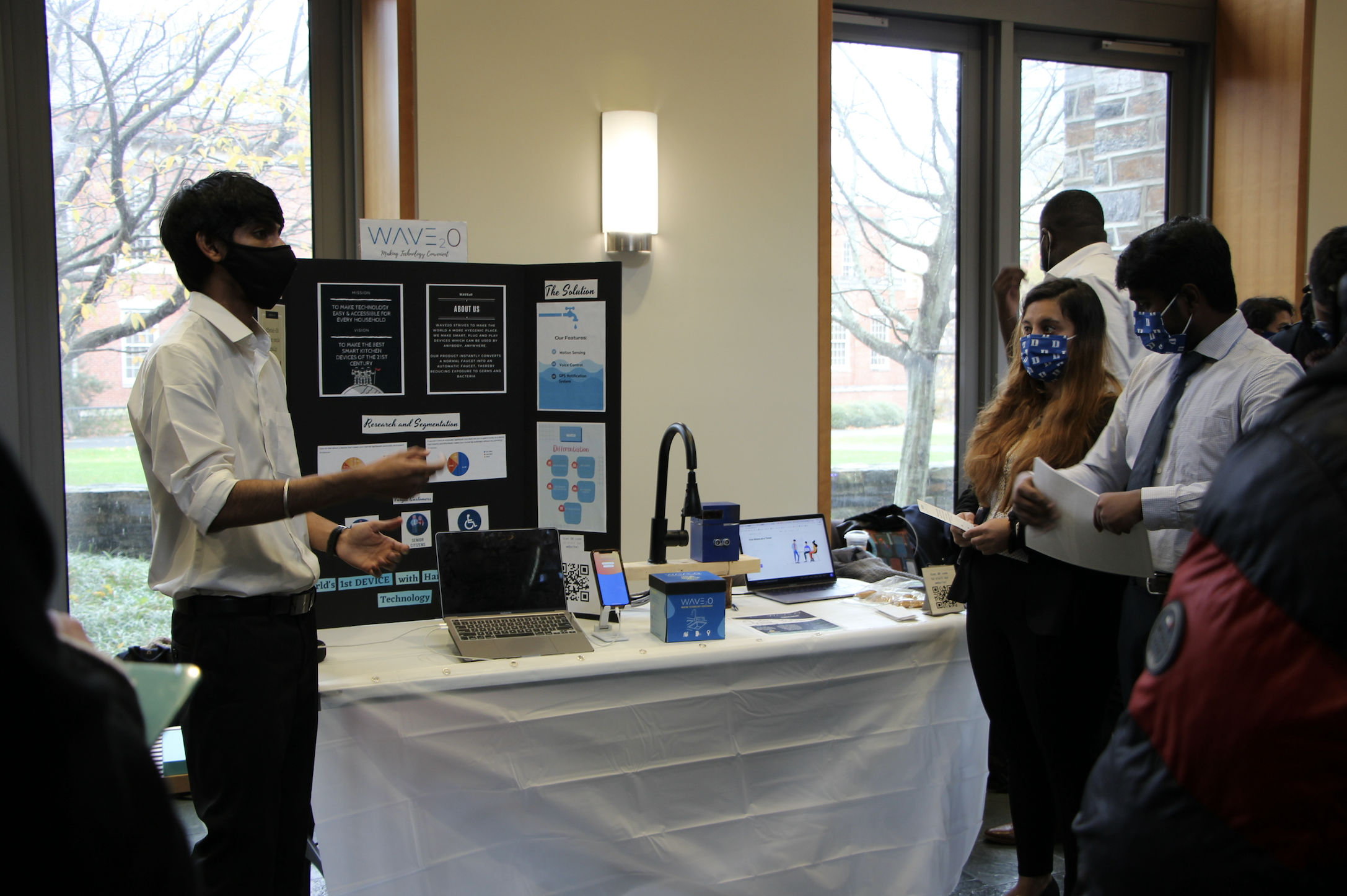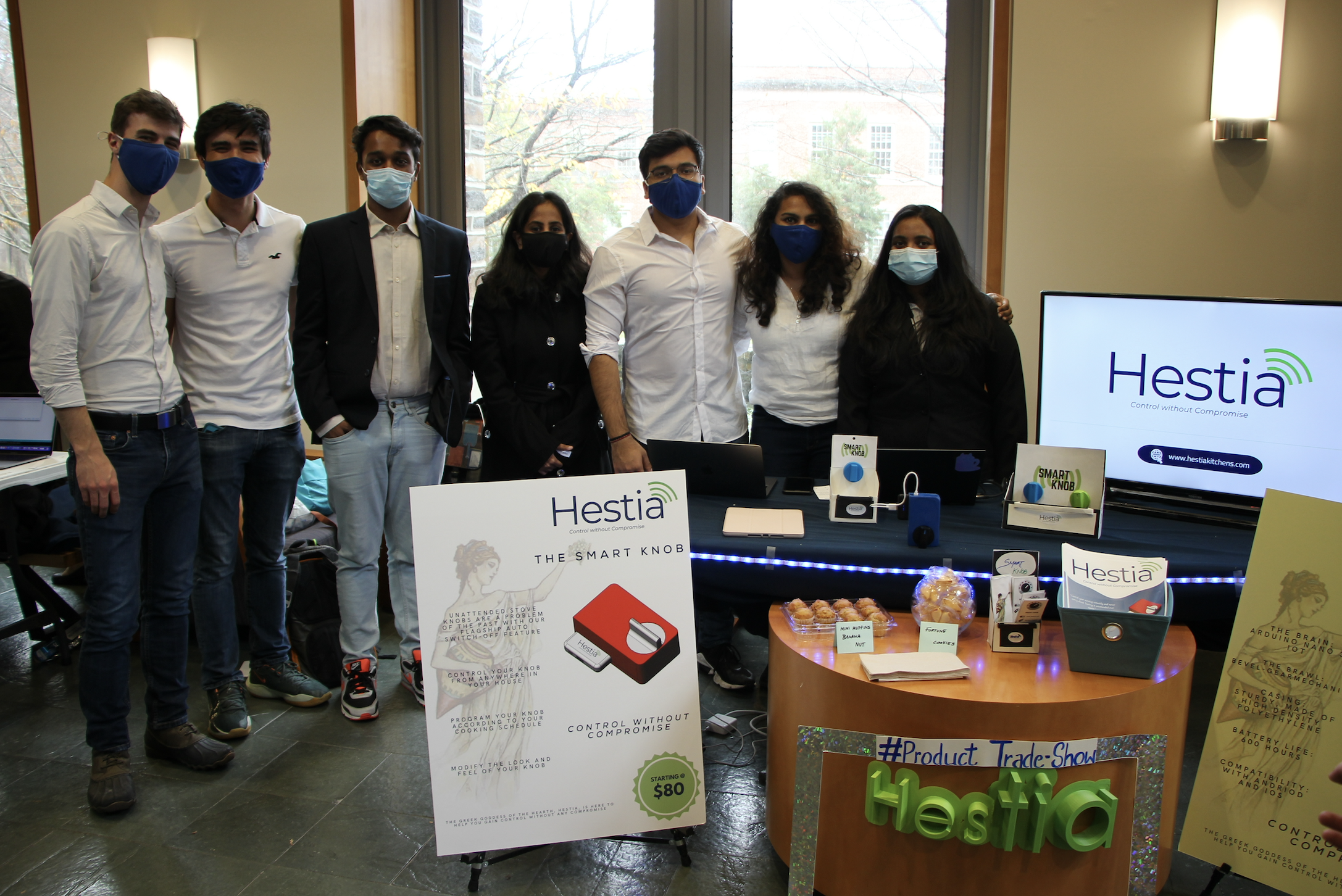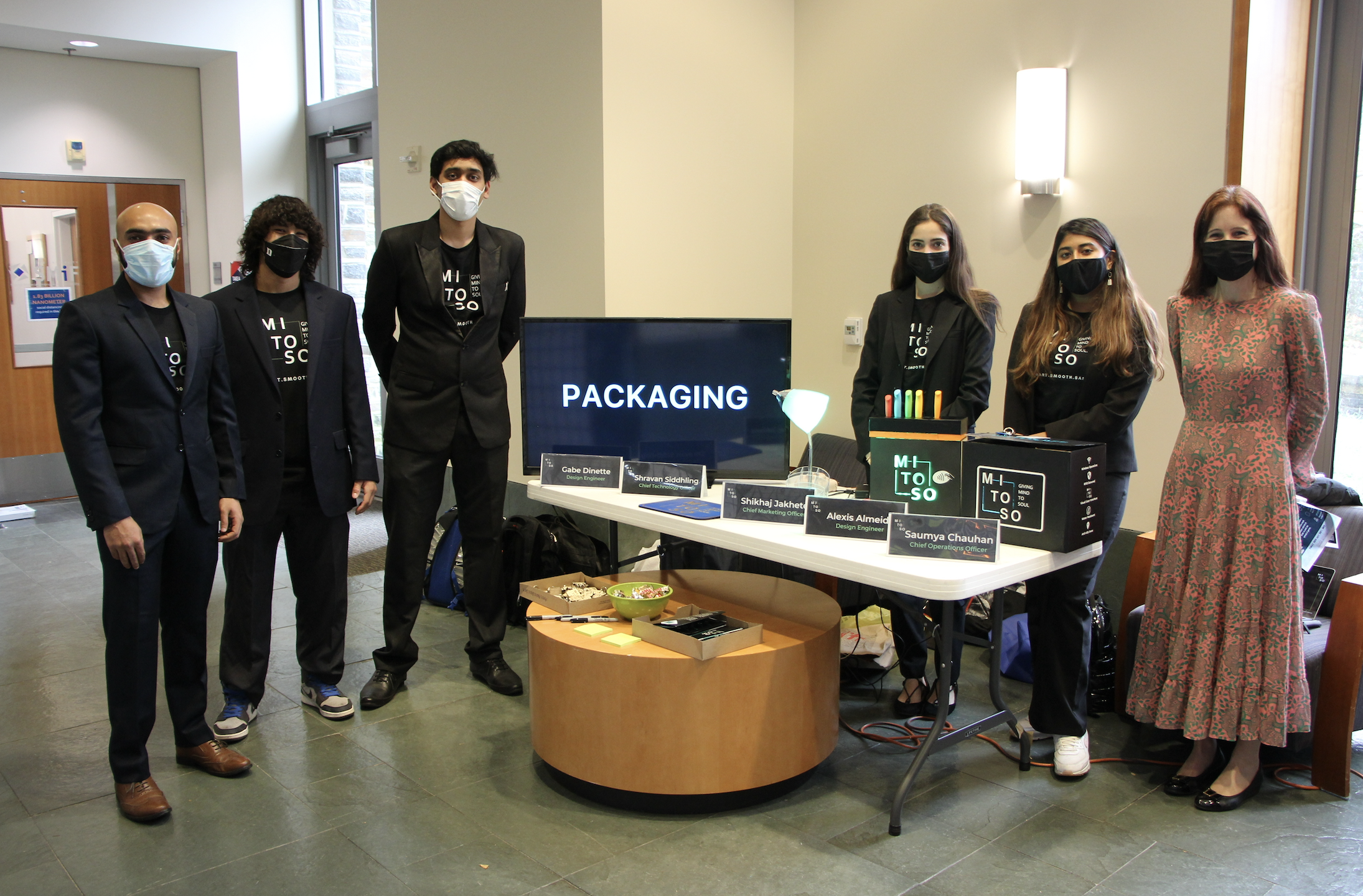Bringing Ideas from the Kitchen to the Marketplace
Michaela Kane
Duke Engineering’s first-ever Managing Product Design “Trade Show” highlighted student ingenuity

Normally the Fitzpatrick Atrium isn’t filled with booths displaying a variety of kitchen supplies, but that wasn’t the case during the Managing Product Design Trade Show. During the event, held on Monday, November 22, Master of Engineering Management and undergraduate engineering upperclassmen student teams collaborated in presenting culinary tools to their peers and engineering faculty.
“I always thought of the kitchen as a very creative space in the house, and I thought it would be an area where our students could come up with really interesting products,” said Greg Twiss, an adjunct associate professor in the Thomas Lord Department of Mechanical Engineering and Materials Science at Duke University.
Over the course of a semester, MEM students collaborated with junior and senior undergraduate engineering students to conceive, design, and test an electromechanical “smart” kitchen product. The teams were required to create these products under realistic time, budget, and performance constraints.
During the Trade Show, the teams put together elaborate booths where they discussed how they came up with their products, what need or issue they address and the development and design process. The teams were judged on their designs, display, and presentation.
“We wanted to give students a chance to gain practical experience, not only with the design and development of a product, but also with product presentation,” says Twiss. “Trade shows are an excellent way to pitch and market a product, but with COVID opportunities have been limited. This internal Trade Show ended up being a great solution, and I think everyone enjoyed learning more about what their peers were working on.”
Projects included DoughLove, a small and affordable cooker that was marketed as an “Easy-Bake Oven for adults,” and promised to make the perfect cookie in just 15 minutes. Ever worry that you’ve left your oven on? The Hestia team devised a solution to that perennial question by developing a smart stove knob that could connect to a user’s phone and allow them to remotely switch the stove off.
The COVID-19 pandemic proved the importance of handwashing, and the WAVE2O team aimed to make the process even cleaner by developing a tool that could attach to and automate at-home sinks. By waving a hand in front of the WAVE box, users could turn their faucet on for a set number of seconds, without touching the faucet itself. The Time Savor team makes it easier than ever to get a morning cup of coffee by creating a smart coffeemaker that can connect to a user’s phone. Not only is the device self-cleaning, but it also allows users to adjust the strength and temperature of their coffee via an app. 
Finally, the MITOSO team presented a smart knife block. The tool contains six standard-sized, color-coded knives, which are stored in a RFID-secured knife block. The block prevents young children from grabbing a knife without adult supervision. Users can unlock the block via a simple RFID tag or bracelet.
“We’re thrilled to see the variety of projects that our students came up with, and we’ve been very impressed with their presentations,” says Twiss. “This event was a tremendous success, and I’m looking forward to future Trade Shows where we can continue to highlight our students’ impressive work.”

